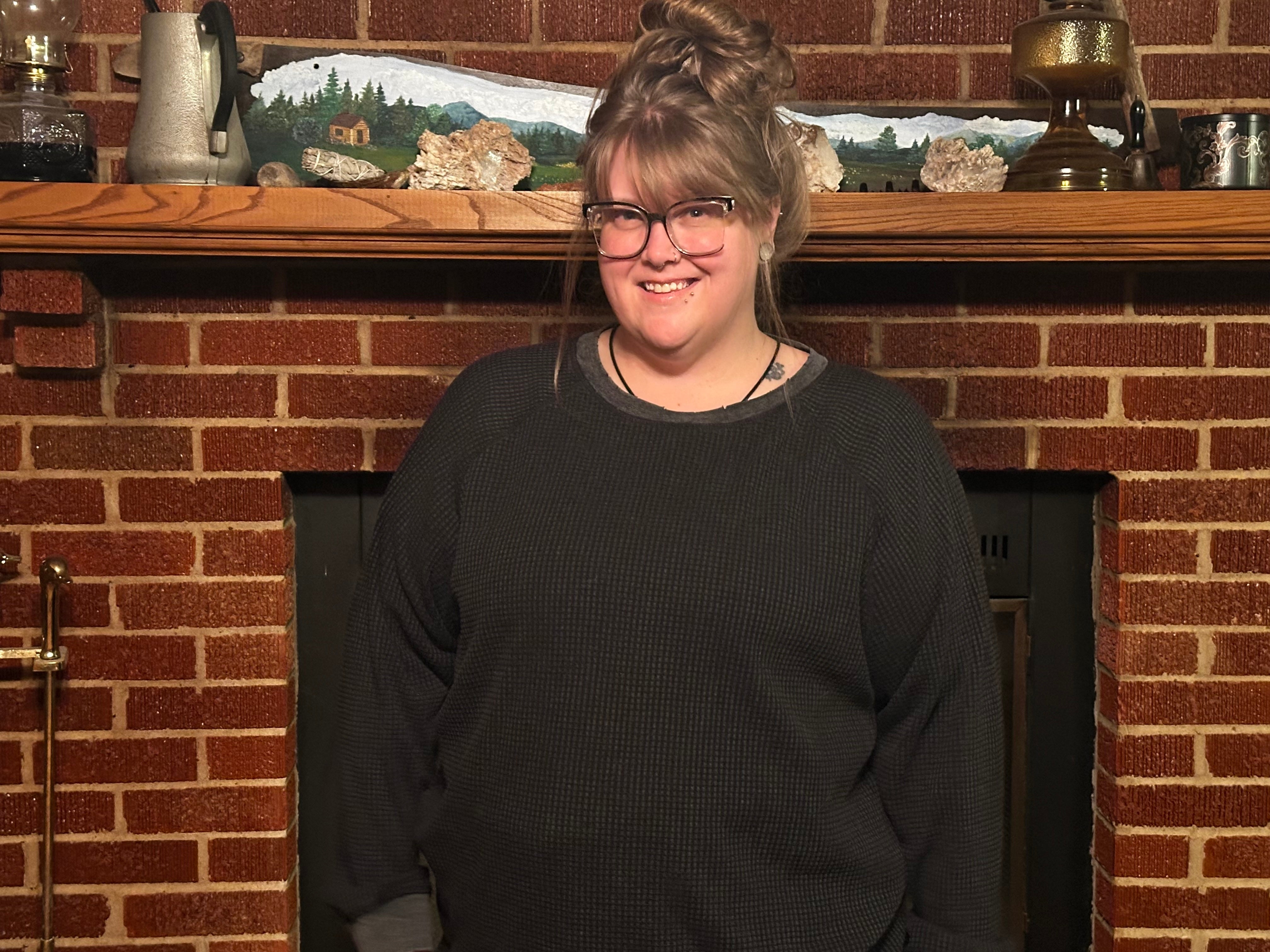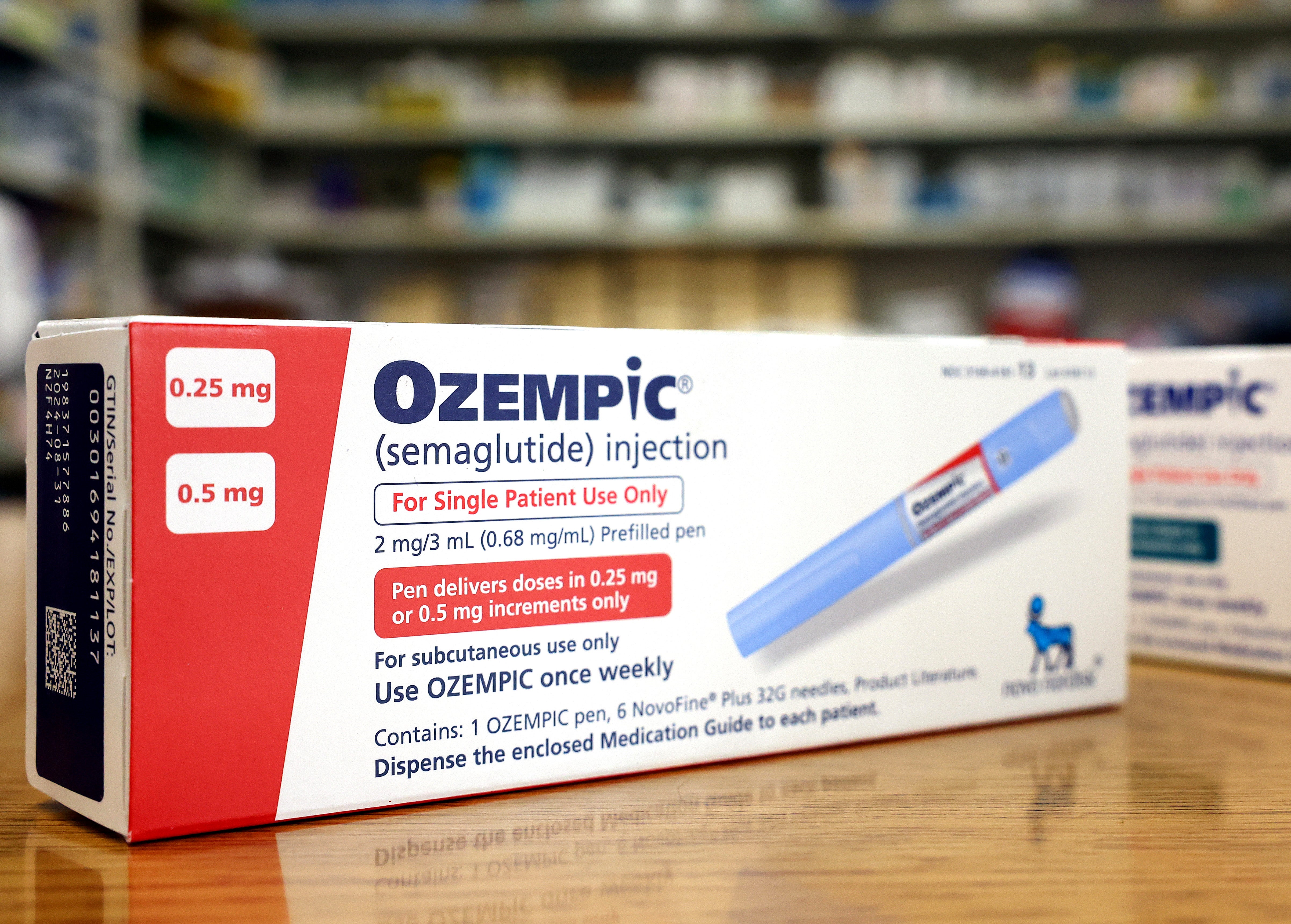Ozempic looked like a miracle drug. But it didn’t work for me
Doctors say it’s not uncommon for patients to not lose weight on the GLP-1 drugs, even if celebrities are seemingly shedding dozens of pounds. Julia Musto spoke to people frustrated that they are part of the 20 percent of people who don’t have success

Danielle Griffin grew up as a self-ascribed "chunky kid,” bullied for her weight, always hungry, and struggling with her self-confidence.
So when she saw that celebrities were suddenly shedding dozens of pounds using new diabetes and weight loss drugs, she felt like finally she had the answer she'd always dreamed of. She went online, got a prescription for Ozempic, and waited for her life — and body — to change.
Except, Griffin seems to be one of the estimated 20 percent of people who don't find success on the GLP-1 drugs.
“It was the new craze; everybody was having these amazing results on it, and I wasn't,” Griffin told The Independent.
She lost a small amount of initial weight (13 pounds) in the first two months, and then plateaued. Months went by, and the scales didn't change. Griffin felt like she’d failed at weight loss, again.
More than two in five U.S. adults have obesity. The chronic disease is multifaceted — and doctors say it’s not uncommon for patients to not lose weight on the GLP-1 drugs, even if others may have profound success. Recent research out of the University of Pennsylvania has found that between 35 and 50 percent of patients do not lose 5 percent or more of their body weight.
That means there are a lot of people not getting the results they’re expecting. Dr. Marc Bessler, the chair of surgery at New York’s Northwell Lenox Hill Hospital and a bariatric surgery specialist, said that the U.S. needs to alter its approach instead of treating obesity “like we were treating cancer 70 years ago.”

“Which is, ‘Oh, it’s one disease, it might show up in different organs, but it’s one disease.’ We don’t treat cancer that way anymore. Each cancer is treated with its own separate understanding about its natural history and its cells that are involved in the chemotherapy that it might respond to,” he said. “We still look at obesity as: it’s one’s disease. It almost certainly is not one disease.”
Griffin, a 38-year-old information technology worker from New Mexico, started on Ozempic and then moved to Wegovy – another semaglutide drug that helps to control blood sugar levels in the body – because the drug was more widely available.
Her initial weight loss had gotten her hopes up — “I was like, ‘Oh, this is great. It's gonna work,’” she said. “And then I didn't lose anything after that.”

Despite her lack of major results, she was told she couldn’t just get off of the drugs.
“You hear all of the success stories, and you see people, and it's frustrating,” Griffin said.
She scoured message boards to read about other peoples’ experiences. She had never felt any kind of side effects from the drugs — such as pancreatitis and vomiting – but those who had appeared to be the ones losing the most weight, she said.
But doctors note that they’re never entirely sure which patients are going to have success on the drugs. “I don’t think anybody has figured out who’s going to be responding, who’s not going to be a responder, and how much people are going to lose,” Bessler explained.
Dr. Michael Knight, an associate professor at The George Washington University and an obesity medicine physician, agrees. He said in his experience that some people have had better success on Zepbound than other drugs because it is a dual agonist: meaning it stimulates both the GIP and GLP-1 hormones, while Ozempic only stimulates GLP-1.
“Some people have excess weight because of medications. Other people, it is because of the way their body is processing the food that they’re eating. Others may have conditions including insulin resistance, or they may have diabetes or other metabolic conditions that affect the way that their body manages weight,” Knight said. “And so, as a result of that, any one treatment is going to work differently for different people when it comes to how much weight you can expect to lose.”

People taking Ozempic and similar drugs typically lose between 15 to 20 percent of their body weight, according to Columbia University Irving Medical Center’s Department of Surgery. Just about a third of patients experience around 10 percent loss of body weight.
Despite concerns regarding potential side effects and effectiveness, approximately 30 million Americans have tried the medications, including drugmaker Novo Nordisk’s Wegovy and Ozempic, and Eli Lilly and Company’s Mounjaro and Zepbound. The weight loss drugs, originally intended to treat diabetes, work by mimicking a natural hormone that can suppress a user’s appetite — although as their popularity increased, patients encountered shortages.
Kyle Smith, a 37-year-old who owns an IT consulting company in Southern California, said that he was also drawn to trying the medications after seeing how much weight celebrities had lost. Although he was considered obese, he didn’t have any pre-conditions, such as diabetes or heart disease. His doctor was on board for him to take Wegovy, but his insurance wouldn’t cover it. He started paying for the drugs from a pharmacy outside of the U.S., slashing the cost by two-thirds. Like Griffin, he got whichever drug was accessible and lost 40 pounds.
But the side effects were overwhelming. Smith was fatigued, and suffering from heart burn and constipation. He decided to come off the drugs, but immediately he began to gain weight “so fast.”

Now, Smith is back on Wegovy.
“I don’t think it’s working for weight loss as well as it did the first time. It’s definitely taking longer,” he said. “I’ve been on it for two months now and I think I’ve only lost six or seven pounds, which is definitely slower than before.”
Griffin said that she was also gaining weight back after a few weeks off the medication. She said prospective patients should know that everybody is different.
“It can be very isolating, and when you see other people succeeding on the medication and there's so much stigma around it and how popular it is and then it doesn't work for somebody: it’s so disheartening,” she added. “It makes you feel like, ‘What's wrong with me?’”
The weight loss drugs are just one option — and one that plenty of people do not find success with.
“There’s not a one size fits all,” said Knight.






Join our commenting forum
Join thought-provoking conversations, follow other Independent readers and see their replies
Comments